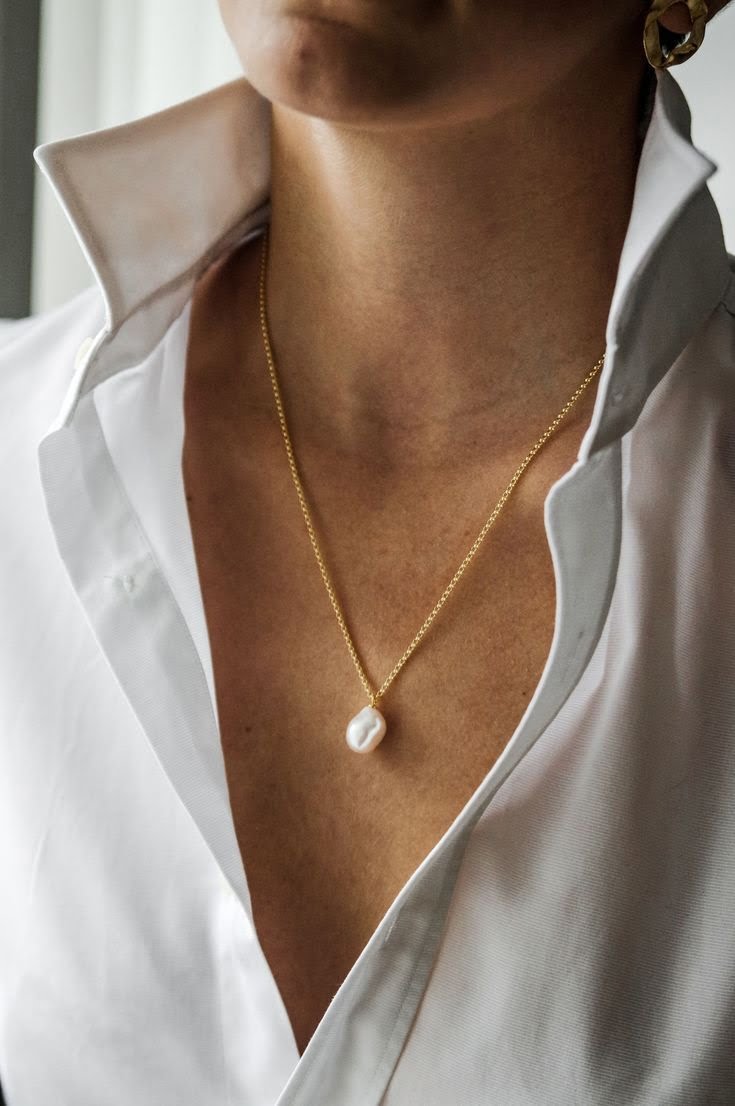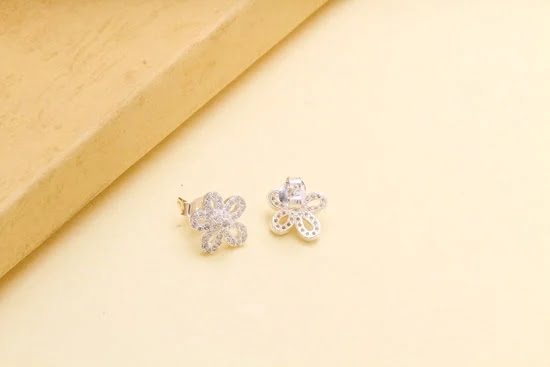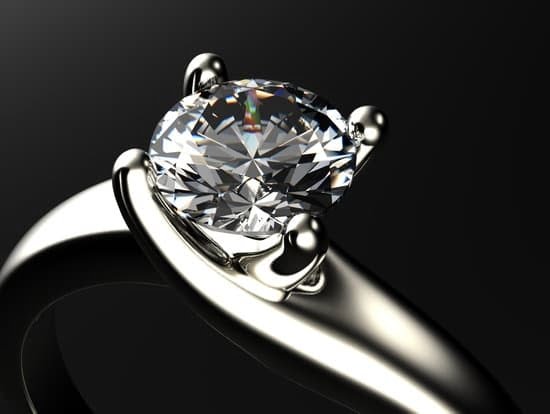Introduction
The Bible, a vast collection of sacred texts and scriptures, has much to say about wearing jewelry. From guidelines on proper adornment to warnings against its use in certain contexts, Christian believers can get an accurate understanding of how their faith should affect their decision to wear jewelry. While it would be too exhaustive to discuss every single passage related to this topic in full detail, this article seeks to provide a comprehensive overview of what the scriptures say regarding the appropriate use of jewelry.
One of the most important passages about jewelry can be found in 1 Timothy 2:9 which states “I also want women to dress modestly, with decency and propriety, adorning themselves not with elaborate hairstyles or gold or pearls or expensive clothes.” This verse outlines one key principle for those considering whether or not to adorn their body with jewellery – modesty. It teaches that excessive ornamentation does not glorify God and encourages believers to take into account the consequences for dressing too extravagantly when deciding if donning jewellery is right for them. Furthermore, it serves as an admonition against basing a person’s worth on the amount of material possessions they own.
In addition to 1 Timothy 2:9, other Bible verses also speak directly to wearing jewelry. In Isaiah 3:18–19, jewellery is described as a vain display of wealth and pride; “in that day the Lord will take away the finery…and ankle chains and sashes, headdresses…” Furthermore, Proverbs 11:22 reads “like a gold ring in a pig’s snout is a beautiful woman who shows no discretion” warning against using modification such as jewellery as a means of overstating one’s beauty or status as opposed to relying on inner qualities such as character and wisdom.
Overall, it can be seen that there are both negative and positive connotations attached when discussing what The Bible says about wearing jewelry. Ultimately though, it is up each person individually which pieces they choose – whether traditional metal wedding rings or necklaces strung with colorful gemstones – so long as these decisions are made in accordance with Scripture and always staying within bounds set by God’s Word. Additionally, those who choose not to wear any type of embellishment should remain respectful towards those who decide differently while remembering that no amount external modification can replace beauty rooted in faith-based values such as kindness and generosity.
Old Testament Passage Examining Jewelry—Proverbs 3 & 31
Proverbs 3 states that it is the Lord who blesses with riches, rewarding those who accept his guidance and live a life of integrity. Likewise, Proverbs 31 affirms that honor and dignity come from following the teachings and commands of God. In regards to jewelry specifically, both passages emphasize that material wealth should not be a sign of status, but instead of being faithful to God. They suggest using worldly luxuries wisely and as tools for demonstrating gratefulness rather than to indulge in vanity. This is later echoed in New Testament passages such as 1 Corinthians 7:33-34 which explains how possessions such as jewelry are fleeting, but the peace given by the creator holds far greater value than anything else.
What Did Adornment & Jewelry Represent in The Bible?
Adornment and jewelry often featured heavily in the Bible. In many cases, it represented not just beauty but also a sign of wealth, power, or honor. It was believed that those who possessed jewelry and adornments showed off their status in society. This was particularly true with the wealthy aristocracy of ancient times who could afford expensive necklaces, bracelets, and crowns to symbolize their elevated rank.
Adornment and jewelry was also worn to symbolize one’s faith. Many pieces of jewelry may have been acquired as prayer offerings from believers wishing to demonstrate their submission to God’s will. Moreover, these pieces may have held specific religious or spiritual meaning for those who wore them. For example, tribal chieftains may have worn crowns to represent divine authority says God appointed them over the land; women may have worn stars made out of silver or gold as symbols of a commitment to follow the Lord; and priestly garments usually consisted of multiple decorative accessories like robes lined with bells and pomegranates meant to depict holiness and heavenly glory.
Not all depictions of jewelry in the Bible were positive though; both men and women alike may have used them as outward symbols of vanity and personal pride instead—something that God did not appreciate.
New Testament References to Jewelry & Adornment—1 Peter 3
In 1 Peter 3, the apostle Peter encourages women to use their beauty and adornment in a way that is honoring to God. Instead of outwardly trying to gain attention with flashy jewelry and clothing, Peter tells women to focus on cultivating an inner beauty of the heart through moral purity and humility. He writes in verse 3, “Your adornment must not be merely external—braiding the hair, and wearing gold jewelry, or putting on dresses” (1 Peter 3:3). Here we see that although God does not forbid wearing jewelry or attractive clothing, it should never be used as a means of immodestly drawing attention to oneself. Rather women are encouraged to adorn themselves in a way that honors the Lord by developing ethical qualities such as love and respect for others. Furthermore, women should remember that there is more value in being adorned with spiritual qualities than physical ones. As a result of striving towards moral virtues, they will discover true beauty within their hearts as they grow closer to Christ.
The Impact of Jewelry in Ancient Israel & Other Civilizations
Jewelry played a very important role in Ancient Israel and other civilizations. In the Bible, we see several references to jewelry being worn as symbols of prestige and power. According to Exodus 28:17-20, Aaron was instructed to have a gold plate engraved with the words “Holy to the Lord” and attach it to the high priest’s turban to signify holiness, honor, and authority. The use of jewelry was considered an appropriate way to show appreciation for powerful figures or God himself. Jewelry often served as a status symbol and was used to indicate wealth and rank within the community.
It wasn’t just powerful figures who wore jewelry; ordinary citizens were also able to wear jewelry since it served multiple purposes such as lovingly remembering special occasions, comforting people in times of sadness, or simply adorning one’s body. Often times jewelry would be made with different designs or motifs that held spiritual significance such as stars of David or religious writings. Gold was also a desired material since it signified how valuable that piece was for its wearer. People wore golden earrings, breastplates, necklaces, rings and more in order to show off their prosperity and riches in those days.
Warnings & Examples of How Jewelry Can be Abused & Used for Idolatry
The Bible has multiple warnings regarding jewelry and the ways in which it can be abused and used for idolatry. One of the most well-known examples of this is found in Exodus 32, when Aaron crafts a golden calf as an idol for the people to worship. The Israelites’ use of jewelry to venerate the false god further provoked God’s wrath against them. In addition, 1 Timothy 2:9-10 speaks to believers that they should not adorn themselves with braided hair or gold or pearls or costly attire — cautioning against using these things as symbols of status and wealth instead of showing character traits associated with love and faith. The book of Job 28:18 also warns against forming idols with fine gold, warning it will abide forever— speaking to how jewelry could become a means through which one abandons God’s truth in favor of something based on appearances but ultimately proving to be fleeting and empty. Thus, readers can take from scripture that although jewelry can be beautiful adornment, its potential for abuse renders biblical believers vigilant to keep their focus on God and avoid developing any sense of attachment to ornamental objects that could induce vanity.
Using Jewelry for Holiness & Promoting Godly Beauty
The Bible does speak about the use of jewelry in a positive light, especially when it comes to promoting holiness and godly beauty. In 1 Peter 3:3-4, Christian women are encouraged to not solely focus on outward appearances and vanity but instead embrace their inner beauty through modesty and reverence for God. The passage hints that modest and tasteful adornment such as jewelry can play an important part in honoring one’s faith. Proverbs 31:22 also praises the godly woman who “makes coverings for herself; her clothing is fine linen and purple.” This illustration of nobility speaks to our creator’s appreciation of fine fabrics, colors, and perhaps even dyes – which would include beautiful jewelry as part of her wardrobe.
In addition, Exodus 28:2-12 outlines the ephod – an item worn by Jewish Priests that contained many pieces gold, silver and brass gems alongside colorful threads. Ancient High Priests may have seen scripture come alive through accessories like these that adorned their spiritual garments for special ceremonies honoring God. Throughout scripture then we see that tasteful adornment was used in the past both to honor God through sacred ceremonies and birthright origin stories as well as to reflect a desired level of solemnity from devout individuals running close to their creator’s heart – using decorations like jewelry positively is definitely further recommended by scriptures throughout the Bible.
Conclusions
The Bible offers a few primary of commands related to jewelry: be humble and do not use your accessories to spark envy in others. Nowadays, jewelry still holds an important place in many people’s lives; it adds color and flair to an ensemble, expresses personal style and demonstrates affection or gratitude through gifts. Therefore, when choosing and wearing jewelry today, tread carefully so as not to err from the Bible’s teachings.
Follow the lead of King Solomon who said “Too much clothing saps our energy” – in modern terms this could refer to too much jewelry. While it is perfectly fine to dress with class and modesty, indulging oneself in wearing excessive amounts of gems or metals can be read as a sign of selfishness or arrogance. Instead, choose a moderate number of tasteful pieces that enhance your signature style statement – exalt yourself through liberty within abstention from overindulgence. When you feel inclined to buy expensive items for impression rather than adornment it is likely best to step away for now – if you must buy something special invest in timeless heirloom pieces with durable materials that can be handed down generations instead of luxurious trinkets made of easily susceptible material meant only for transient charisma.
When choosing and wearing jewelry, remember that what matter most is how you make others feel and how they perceive your intentions. Do not wear your accessories simply as a bragging right but instead use them as conversation starters; rather than putting too much emphasis on physical representation find joy by worshipping God privately without ostentatious gadgets begging attention in public squares. Thus by observing the Bible’s commands we can be assured that our jewelries act as portal for positive reinforcement versus inducement for jealously or hubris among less affluent communities.

Welcome to my jewelry blog! My name is Sarah and I am the owner of this blog.
I love making jewelry and sharing my creations with others.
So whether you’re someone who loves wearing jewelry yourself or simply enjoys learning about it, be sure to check out my blog for insightful posts on everything related to this exciting topic!





